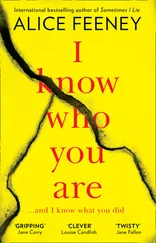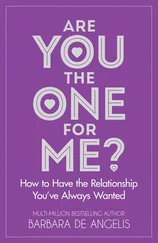For the next two weeks, I swam at her house every day until the pool had to be closed for the season. They had a diving board, and Jenny and I took turns executing tricks and giving them ridiculous names. It wasn’t a cannonball when I folded my body into a tight tuck, it was a “popcorn kernel,” and when I did backflips—thanks to gymnastics, diving came easily to me—I dubbed them “rewinds.” Mrs. Jones was our lifeguard. She watched us from a lounge chair at the shallow end and clapped whenever either of us completed a dive.
“It’s so nice to meet you,” said Mrs. Jones the first afternoon I was there. She had the perky delivery of a cheerleader. She made us a snack—peanut butter on celery sticks—and asked about my family. What did my dad do? she wanted to know. Her flat midwestern A ’s made it sound like “Daaad.”
“He lives in London,” I said.
“London, England? Gosh, that’s far away,” she said.
“They’re divorced,” I said. And though divorce was common in our Washington circles, Mrs. Jones looked shocked. I liked her innocence: troubled thoughts rushed across her face like clouds and were gone just as quickly. She was a clear sky.
“What a shame,” she said. “What a terrible shame.”
“It’s okay,” I said. “Some people just aren’t meant to live together.”
“What about your mom? What does she do?”
“She works for nuclear disarmament,” I said.
It was only after my father left that my mother had begun to worry about nuclear war. She learned to channel her anxiety. The good thing was that she started leaving the house to attend disarmament-movement meetings. She got over her fear of the dark so that she could turn our basement into a fallout shelter.
My mother mapped out scenarios, calculating the reach of the radioactive fallout if the blast hit Kansas City, say, or Washington. She drew ominous red circles in our Rand-McNally to mark the circumference of destruction. At the kitchen table, the hanging lamp created a tunnel of light under which she envisioned doom. She’d press her slide rule across swaths of U.S. territory. The fifty states were rendered in pastels—yellow, orange, and green—but as I squinted at them, the crimson lines that my mother etched around their innocent metropolises gave the whole nation a fiery hue. “Look,” she’d say, pointing at the Midwest of her childhood. The corn-soaked plains where her hopscotch squares had been overshadowed by stories of Hiroshima.
“What,” I’d say, moving into her orbit. It was not a question when I said it, because I knew the answer. She always wanted to show me the same things. Missile silos dotting the prairies. Air force bases with nuclear weapons stacked neatly underground, ready to violate the vast blue skies. She marked the location of these Russian targets with black stars. My mother wouldn’t look at me, but she took my arm, pulled me close. And then, with one cool hand, she guided my stuttering finger across the page. For a moment she was still. Unusual for a woman who was generally so high-strung. Who fretted through rooms, who would often shake her hands—as if spattering water—when she was thinking. She never realized she was doing it. Sometimes I’d call her from a friend’s house and hear the flutter in her voice. “You’re shaking your hands, aren’t you?” I’d say. “No,” she’d say, and then pause, and I knew she was startled by the sight of her own manic fingers.
I liked to flip the atlas to the Soviet Union, its borders drawn in a muted red. I couldn’t even fit the top of my pinkie inside Luxembourg but could press both my palms onto the Soviet sprawl. The Russians fascinated me. My mother and I watched clips of Brezhnev on the evening news—his chest clotted with medals, his eyebrows bristling under his fur hat—but it was ordinary Russians I was curious about. Moscow, as the capital of the other superpower, struck me as Washington’s twin. Was there an eight-year-old girl somewhere in Moscow whose sister had also died, whose father had also left? “They live in communal apartments,” my mother said. “So that eight-year-old probably shares a bathroom with nine other people.”
Some parents might have hesitated to expose their children to the gloomy realities of the hydrodynamic front, but I was six when my mother explained the concept of half-life. I was seven when she began stocking our basement with canned goods. Baked beans and tuna fish. Creamed corn. Beef jerky. Whole peaches in syrup. My mother did not hide anything from me. I knew that Khrushchev had promised to bury us. I knew that Carter had ordered the Olympic boycott because the Soviets invaded Afghanistan. In those days I’d squint at the sun, knowing that it could vanish, that omnivorous darkness could descend at any time. That a mushroom cloud could swallow us whole or leave us to shrivel in an eternal winter. In my nightmares the landscape was as barren as a photographic negative, the reverse of everything I knew. A world silent and still. Was I scared? Yes, but the fear was so constant that it was like a hum barely audible below our daily chatter. I went to school, I came home. I went to gymnastics. I practiced the piano. I did my homework. But the bomb was always on my mind.
Jenny and I settled into a rhythm that fall. We walked the two blocks to school together—we’d meet outside our houses at exactly five minutes past eight and arrive before the opening bell rang at eight-fifteen. After school, on the three days I didn’t have gymnastics, we’d go to her house and do our homework and, more often than not, bake brownies. There were always Duncan Hines mixes in the cupboard. Mrs. Jones was always there to ask about our day. She smiled a lot. At first it made me nervous—there was something unsettling about all that grinning—but my mother said that people smiled more in Ohio.
We rode our bicycles around the oak-canopied streets of our neighborhood. There were a lot of kids in Cleveland Park. They congregated on the Macomb Street playground or at the community club on Highland Street. We were all allowed to roam without supervision until dusk, when a chorus—mostly the accented voices of nannies and housekeepers—summoned everyone home for dinner. For years I had lingered on the fringes of the other kids’ society—I would occasionally be drafted into kickball when their numbers were uneven—but now Jenny was with me. She could have picked anyone to be her friend. I’ve come to understand that some people are suns that pull others into their orbit. The first time we went to the Macomb Street playground together, the others swarmed around Jenny like mosquitoes around a light. She dictated the terms of the interaction. Before they could ask her name, she announced it. Before they could ask where she was from, she told them. “Do you call soda ‘pop’?” asked one of the older boys when he found out she was from the Midwest. His name was Josh, and he was in sixth grade. He and his younger brother lived two blocks away from me but had never acknowledged my presence. “I do,” Jenny said without apology. “Pop is way more fun to say. POP!” Josh invited her to join their soccer game. But Jenny chose me. We ignored the others and created our own world.
The National Cathedral was just a few blocks away from us, and the Bishop’s Garden—with its labyrinth of hedges—became our favorite place to play. In the garden we were princesses and fairies, we were orphans and spies. The gargoyles towering above us became monsters we had to escape; the cathedral bells chimed to celebrate make-believe weddings. We held summits in the gazebo. And in a crack that we discovered in the ten-foot wall that encircled the garden, we began to leave each other secret messages. An average piece of ruled paper could be folded into sixteenths and squirreled in the masonry’s hole without detection. The messages lacked consequence: since we saw each other almost every day, we didn’t need them to communicate. But it was exciting to slip across Woodley Road and up the hill—the cathedral is on the highest point in Washington—to check for messages. She’d leave notes for me on the afternoons I was at gymnastics; I’d retrieve them on Sunday mornings while she and her parents were at church. My mother was agnostic, so my exposure to God was limited to the cathedral police (the “God Squad”) who periodically mazed through the Bishop’s Garden on patrol. Eventually I’d end up at a school that was nominally Episcopalian, but it was only really religious about getting its alumnae into the Ivy League. Jenny and I never signed our notes in case a stranger found them . “This message will self-destruct,” I wrote. Or “Burn after reading.” Sometimes Jenny’s notes were in pig latin. “Athmay omeworkhay uckssay,” said one.
Читать дальше












